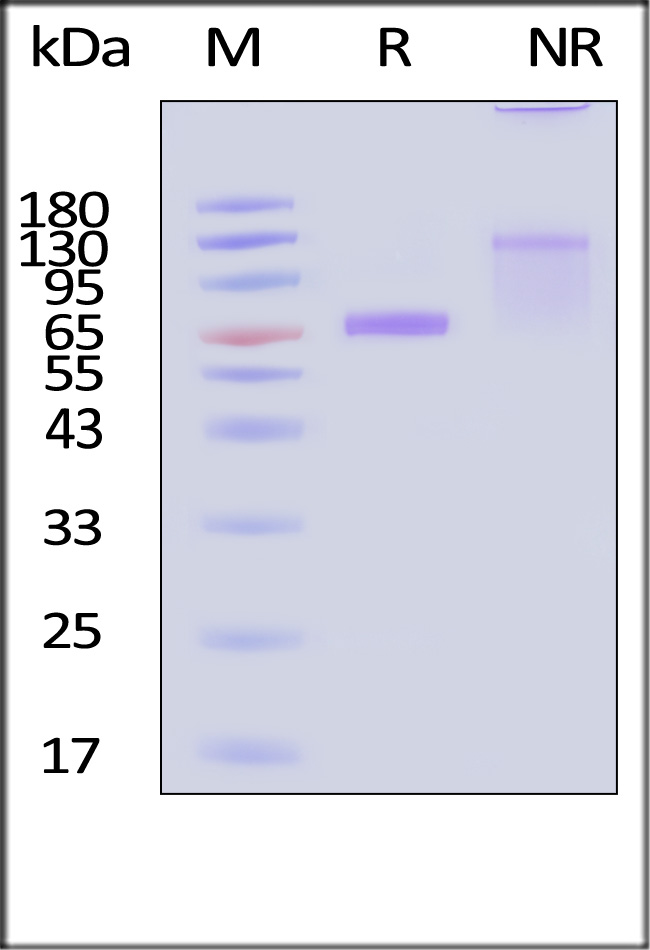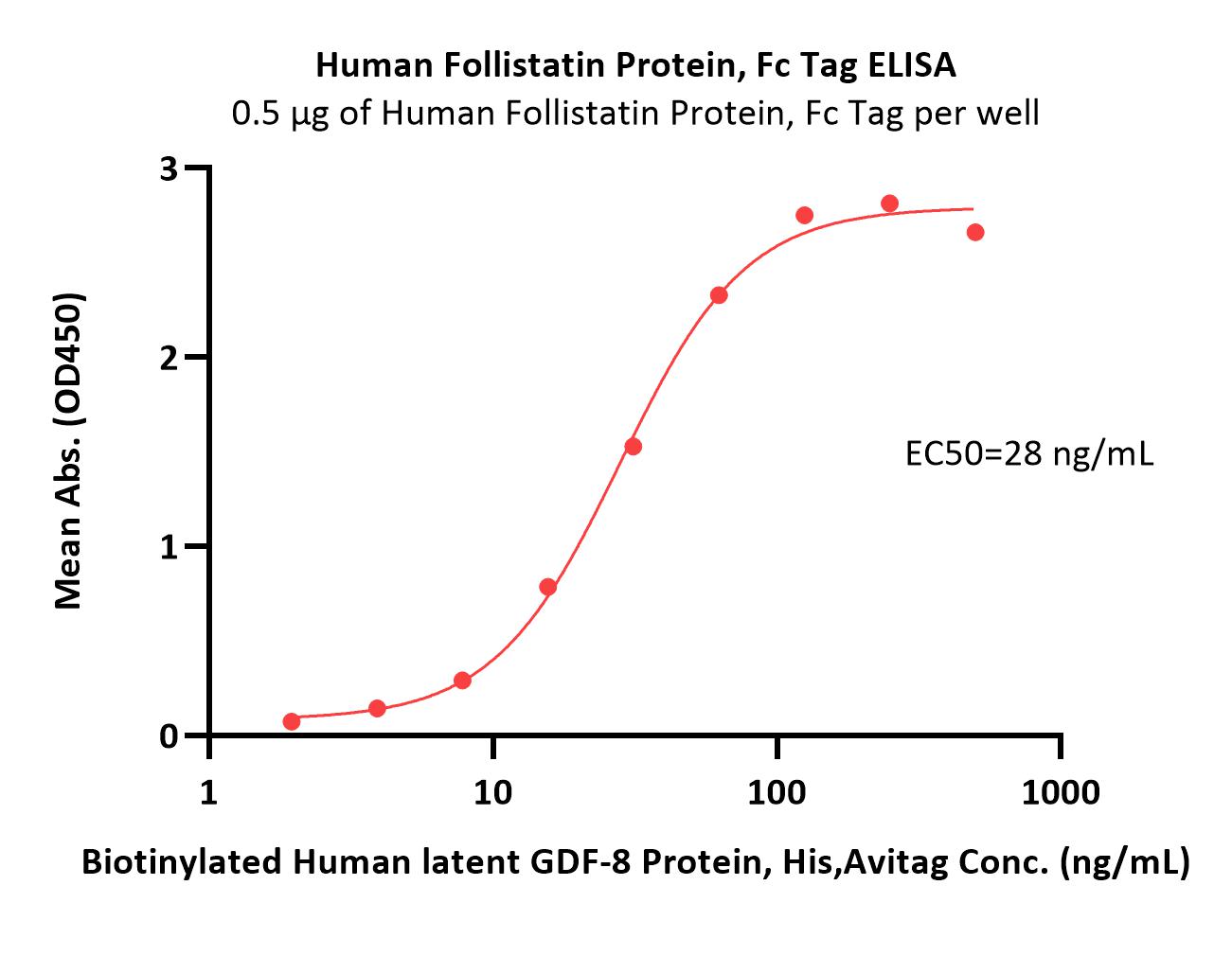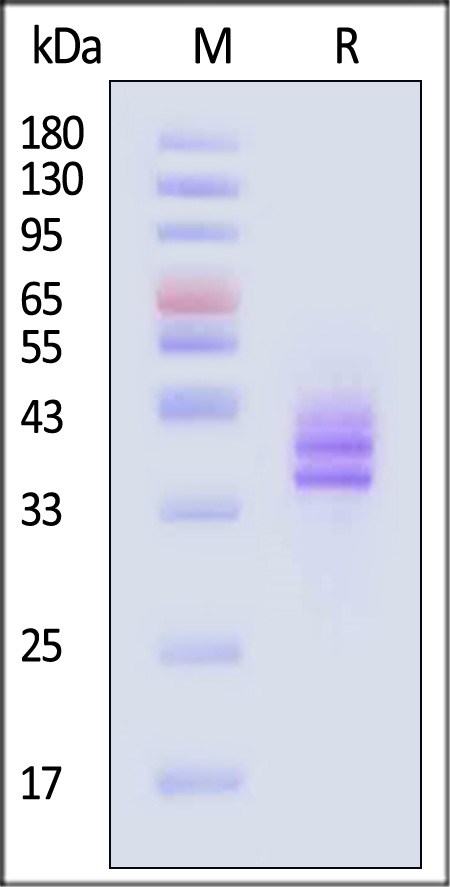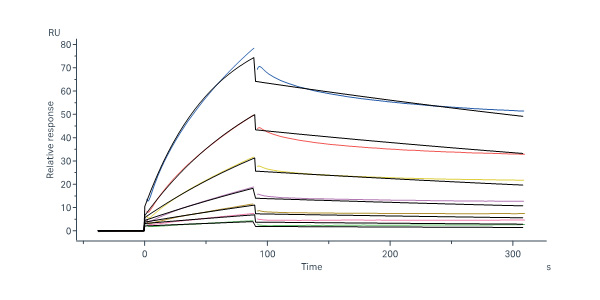Follistatin分子别名
Follistatin,FST,FS,FSP
Follistatin分子背景
Follistatin is also known as activin-binding protein, FST and FSH-suppressing protein (FSP), and is an secreted autocrine glycoprotein that is expressed in nearly all tissues of higher animals. Its primary function is the binding and bioneutralization of members of the TGF-β superfamily, with a particular focus on activin, a paracrine hormone. Currently there are three reported isoforms, FS-288, FS-300, and FS-315. Two, FS-288 and FS-315, are known to be created by alternative splicing of the primary mRNA transcript. FS-300 (porcine follistatin) is thought to be the product of posttranslational modification via truncation of the C-terminal domain from the primary amino-acid chain. The activin-binding protein follistatin is produced by folliculostellate (FS) cells of the anterior pituitary. FS cells make numerous contacts with the classical endocrine cells of the anterior pituitary including gonadotrophs. In the tissues activin has a strong role in cellular proliferation. In the blood, activin and follistatin are both known to be involved in the inflammatory response following tissue injury or pathogenic incursion. Follistatin is involved in the development of the embryo. It has inhibitory action on bone morphogenic proteins (BMPs); BMPs induce the ectoderm to become epidermal ectoderm. Inhibition of BMPs allows neuroectoderm to arise from ectoderm, a process which eventually forms the neural plate. Other inhibitors involved in this process are noggin and chordin. Follistatin and BMPs are also known to play a role in folliculogenesis within the ovary. A study has also shown that increased levels of follistatin, by leading to increased muscle mass of certain core muscular groups, can increase life expectancy in cases of spinal muscular atrophy (SMA) in animal models.






















 Star Ribbon预染蛋白Marker蛋白质标记物是生物研究和药物开发的重要组成部分。无论是用于蛋白质电泳还是western blot,我们的预染色蛋白质标记物帮助您快速确定目标蛋白质的分子量或评估转移效率。Fc受体蛋白治疗性抗体的功效取决于Fab片段及其对目标抗原的结合活性,还取决于Fc片段及其与关键Fc受体的相互作用。因此,在抗体工程中候选物必须针对一系列受体进行测试。探索我们的重组Fc受体蛋白质的全面收藏!
Star Ribbon预染蛋白Marker蛋白质标记物是生物研究和药物开发的重要组成部分。无论是用于蛋白质电泳还是western blot,我们的预染色蛋白质标记物帮助您快速确定目标蛋白质的分子量或评估转移效率。Fc受体蛋白治疗性抗体的功效取决于Fab片段及其对目标抗原的结合活性,还取决于Fc片段及其与关键Fc受体的相互作用。因此,在抗体工程中候选物必须针对一系列受体进行测试。探索我们的重组Fc受体蛋白质的全面收藏!































 膜杰作
膜杰作 Star Staining
Star Staining





















